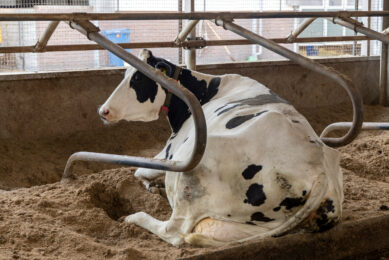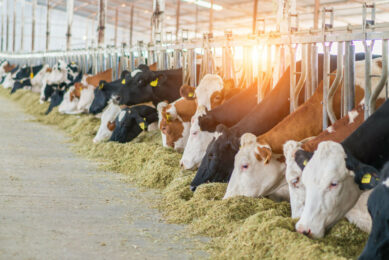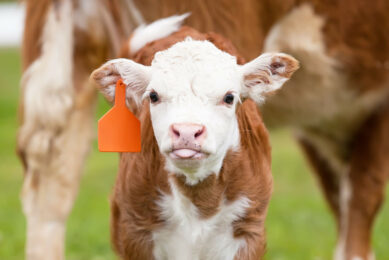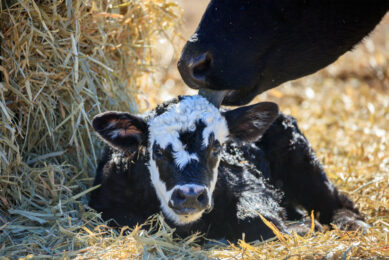Reducing dairy cow stress with positive reinforcement
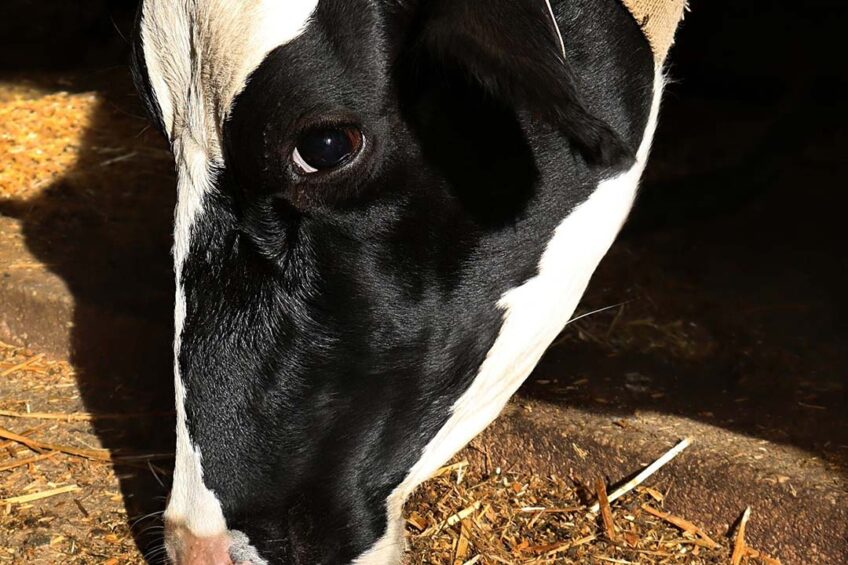
Positive reinforcement training (PRT) has shown promise in reducing stress in companion species and enhancing animal welfare, but little research has been devoted to farm animals.
It prompted researchers at The University of British Columbia to see if dairy cows could learn to reduce distress responses to procedures such as veterinary care, reduce the risk of injury and help them feel comfortable with new stimuli.
Jennifer Heinsius, PhD student in the Faculty of Land and Food Systems, said: “As yet, very little of this research has been devoted to farm animals, so we set out to test the effects of training dairy cows with positive reinforcement in a cattle chute – a common experience for dairy cows undergoing veterinary care or husbandry.”
Holstein heifers
The team started with a group of 20 Holstein dairy heifers ranging from 3-6 months old and which had previous experience in the cattle chute areas and with human handling. They predicted that the heifers trained with PRT would show more anticipatory and play behaviours than the control heifers in the period before gaining access to a chute. The animals were randomly assigned to either a group receiving positive reinforcement training or a control group receiving standard farm handling in the chute.
The study involved 28 training sessions for each animal over 4 days a week with 1 session per day. Heifers were first brought into a waiting area and were then allowed to enter the training area. For the training group, grain was used as a food reinforcement to progress through the stages. The heifers were trained to touch a target with their muzzle – this target was then gradually moved until the animals were fully entering the chute.
Control heifers were also familiarised with the same chute but were not provided with a food reward and were instead guided by a handler using words of encouragement, calm body movements and gentle nudging to prevent them from backing up.
Researchers assessed how the groups perceived their experiences, recording anticipatory and play behaviours during the period when they were waiting in the start box before entering the training area to start their daily sessions.
What did the team discover?
Heinsius said: “Overall, the dairy heifers trained with positive reinforcement showed more anticipatory behaviours in the start box than the control group – they transitioned between behaviours more frequently, indicating they were anticipating the start of their training sessions and their food reward.”
The training group also displayed more play behaviour, including running and jumping, showing they considered the training experience to be a positive one. “Critically, the increases in play behaviours suggests that positive reinforcement training had a positive effect on the animals’ emotional state before handling,” noted Heinsius.
The study team said further research was needed, such as looking at the long-term benefits of the training.
*The study can be found here: Training dairy heifers with positive reinforcement: Effects on anticipatory behavior – Journal of Dairy Science
Join 13,000+ subscribers
Subscribe to our newsletter to stay updated about all the need-to-know content in the dairy sector, two times a week.



